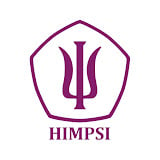RELATIONSHIP IN MOTHER’S PERSONALITY WITH HEALTHY BEHAVIOR IN AUTISTIC CHILDREN WITH CARERING MEDIATION IN THE TIME OF THE COVID-19 PANDEMIC
Abstract
Keywords
Full Text:
PDFReferences
Aldridge, J. (2010). Promoting the independence of people with intellectual disabilities. Learning Disability Practice. 13(9), 31-36. http://sci-hub.se/10.7748/ldp2010 .11.13.9.31.c8097
Amalia, P.M., & Kumalasari, D. (2019). Openness to Expericene, Conscientiousness, Extraversion, Agreeableness, Neuroticism: Manakah yang Terkait dengan Mindful Parenting? Jurnal Psikologi Ilmiah, 11(2).
American Psychiatric Association. (2013). Diagnostic and Statistical Manual of Mental Disorder Edition (DSM-V). Washington: American Psychiatric Publishing.
Baweja, R., Brown, S.L., Edwards, E.M., & Murray, M.J. (2021). Covid-19 Pandemic and Impact on Patients with Autism Spectrum Disorder. Journal of Autism and Developmental Disorders. https://doi.org/10.1007/s10803-021-04950-9
Berns, R. M. (2010). Child, Family, School, Community: Socialization and Support. 8th Edition. Canada: Thompson Wardsworth.
Bornstein, M.H., Hahn, C.S., & Hayne. O.M. (2011). Maternal Personality, Parenting Cognitions, and Parenting Practices. Developmental Psychology, 47 (3), 658-675. https://dx.doi.org/10.1037/a0023 181
Boyd, D. & Bee, H. (2009). Lifespan development. Fifth Ed. Pearson International Edtition. Boston: Allyn & Bacon.
Chi, T.C., & Hinshaw, S. (2002). Mother Child Relationships of Children with ADHD: The Role of Maternal Depressive Symptoms and Depression Related Distortions. Journal of Abnormal Child Psychology, 30(4): 387-400. http://dx.doi.org/10.1023/A:1015770025043
Clarke, T. L. (2006). Big Five personality and parenting behavior in mothers of children with ADHD. Unpublished master’s thesis, University of Maryland, College Park.
Davids, E. L., Roman, N.V., & Leach, L. (2017). The Link Between Parenting Approaches and Health Behavior. Journal of Human Behavior in the Social Environment. http://dx.doi.org /10.1080/10911359.2017.1311816
De Haan, A. D., Prinzie, P., & Dekovi´c, M. (2009). Mothers’ and Fathers’ Personality and Parenting: The Mediating Role of Sense of Competence. Developmental Psychology, 45(6), 1695–1707. https://doi.org/10.1037/a0016121
Desiningrum, D. R. (2016). Psikologi Anak Berkebutuhan Khusus. Yogyakarta: Psikosain.
Filipek, P.A. (2005). Medical aspects of autism. In F.R. Volkmar, P. Rhea, A. Klin, & D. Cohen (eds.). Handbook of Autism and Pervasive Developmental Disorders. Hoboken, NJ: John Wiley & Sons, Inc.
Gilmore, L., Cuskelly, M., Jobling, A. & Hayes, A. (2009). Maternal support for autonomy: Relationship with persis-tence for children with down syndrome and typically developing children. Research in Developmental Disabilities, 30, 1023-1033. http://dx.doi.org/10. 1016/j.ridd.2009.02.005
Gochman, D.S. (1998). Health Behavior. New York: Plenum Press.
Gormley-Flemming, L dan Campbell, A. (2011). Factors involved in young people’s decision about their health care. Nursing Children and Young People. 23 (9), 19-22. http://dx.doi.org/10.7748/ncyp2011.11.23.9.19.c8791
Kring, S.R., Greenberg, J.S., & Seltzer, M.M. (2009). The Impact of Health Problems on Behavior Problems in Adolescents and Adults with Autism Spectrum Disorders: Implications for Maternal Burden, Social Work in Mental Health, 8(1) ,54-71. http://dx.doi.org/10.1080/ 15332980902932441
Lestari, S. (2008). Pengasuhan Orang Tua dan Harga Diri Remaja: Studi Meta Analisis. Anima, Indonesian Psychological Journal, 24 (1) 17-25.
Lestari, S. (2012). Psikologi Keluarga: Penanaman Nilai dan Penanganan Konflik Dalam Keluarga. Jakarta: Kencana.
Margono. (2005). Metodologi Penelitian Pendidikan. Jakarta: Rineka Cipta.
Notoatmodjo, S. (2014). Ilmu Perilaku Kesehatan. Jakarta: Rineka Cip.
Pervin, L.A., & Cervone, K. (2013). Personality Theory and Research. 12nd Ed. New York: John Wiley & Sons, Inc.
Philips, N., Sioen, I., Michels, N., Sleddens, E., & Henauw, S.D. (2014). The Influence of Parenting Style on Health Related Behavior of Children. Journal of Behavioral Nutrition and Physical Activity, 95 (11).
Prinzie, P., Dekovic, M., Reijntjes, A., Stams, G.J.J., & Belsky, J. (2009). The Relation Between Parents Big Five Personality Factors and Parenting: A meta-analytic review. Journal of Personality and Social Psychology, 97(2), 351-362. http://dx.doi.org/10.1037/a0015823
Ramdhani, N. (2012). Adaptasi Bahasa dan Budaya Inventori Big Five. Jurnal Psikologi, 39 (2).
Sadock, B.J., & Sadock, V.A. (2010). Kaplan & Sadock buku ajar psikiatri klinis. Jakarta: EGK.
Smith, C. L., Spinrad, T. L., Eisenberg, N., Payne, T., K., Gaertner, B. M., & Maxon, E. (2007). Maternal personality: Longitudinal Relations to Parenting Behavior and Maternal Emotional Expressions Toward Toddlers. Parenting: Science and Practice, 7, 305–329. http://dx.doi. org/10.1080/15295190701498710
Suparmi, Ekowarni, E., Adiyanti, M.G., & Helmi, A.F. (2018). Pengasuhan sebagai Mediator Nilai Anak dalam Memengaruhi Kemandirian Anak dengan Down Syndrome. Jurnal Psikologi, 45 (2) 141-150. http://doi.org/10.22146/jpsi.34716
Valentia, S., Sani, R., & Anggreany, Y. (2017). Hubungan antara Resiliensi dan Penerimaan Orangtua pada Ibu dari Anak yang Terdiagnosis Autism Spectrum Disorder (ASD). Jurnal Psikologi Ulayat, 4 (1) 43-58. https://doi.org/10.24854/jpu59
Virasiri, S., Yunibhand, J., & Chaiyawat, W. (2015). Parenting: What Are the Critical Attributes? Journal of the Mediccal Association of Thailand, 94(9).
Volkmar, F.R., & Wiesner, L.A. (2004). Healthcare for Children on the Autism Spectrum: A guide to medical, nutritional, and behavioral issues. Bethesda, MD: Woodbine House, Inc. http://sci-hub.se /10.1001/archpedi.158.11.1094
Widagdo, M.W., & Wijaya, H. (2020). Health Behavior of Children with Autism in Indonesia. Journal of Public Health Research and Development, 11 (8).
DOI: http://dx.doi.org/10.22441/biopsikososial.v5i1.14566
Refbacks
- There are currently no refbacks.
Copyright (c) 2022 Biopsikososial : Jurnal Ilmiah Psikologi Fakultas Psikologi Universitas Mercubuana Jakarta
JBUMBand its articles is licensed under a Creative Commons Attribution-ShareAlike 4.0 International License.
Tim Editorial Office
JBUMB
Fakultas Psikologi, Universitas Mercu Buana
Jalan Meruya Selatan No. 1, Kembangan, Jakarta Barat, 11650, Indonesia
Phone: +6281318855243
Email: [email protected]
Website: https://publikasi.mercubuana.ac.id/index.php/biopsikososial/index

















